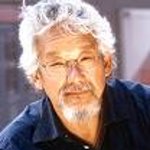By Elizabeth Willoughby on
Three years after the nuclear plant meltdown in Fukushima, Japan, there is little known about its effects on the ocean’s fish stocks.
In a letter written for the David Suzuki Foundation, environmentalist David Suzuki laid out his concern that although there is no evidence that radiation levels are dangerous, with no one monitoring North America’s western shores, how do we know?
Expecting a radioactive plume from Japan to reach the West Coast this year, senior scientist of Woods Hole Oceanographic Institution’s Center for Marine and Environmental Radioactivity, Ken Buesseler, says, “Whether you agree with predictions that levels of radiation along the Pacific Coast of North America will be too low to be of human health concern or to impact fisheries and marine life, we can all agree that radiation should be monitored.”
In January, the non-profit launched a citizen science website called How Radioactive Is Our Ocean? where the public can propose sites for seawater sampling and watch the results of if/where radiation is spreading across the Pacific based on seawater samples sent to the lab for analysis.
“The David Suzuki Foundation is the point group for two sampling sites, on Haida Gwaii and at Bamfield on the west coast of Vancouver Island,” says Suzuki. “The Fukushima disaster was a wake-up call for the potential dangers of nuclear power plants, especially in unstable areas. North Americans may have little cause for concern for now, but without good scientific information to determine whether or not it is affecting our food and environment we can’t know for sure. The Woods Hole initiative is a good start.”
Copyright © 2014 Look to the Stars


